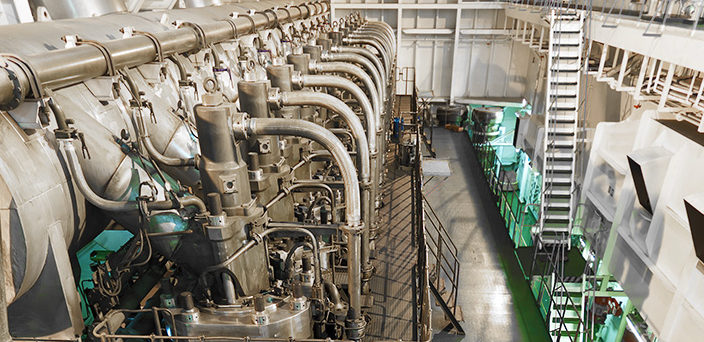A General cargo ship “M” was involved in cargo operations in an Indonesian port. Charterers had arranged the vessel to receive bunkers by a local bunker barge. The barge moored alongside of the vessel for supplying the agreed amount of 155M/T of fuel oil (180cst) into No.1 & 2 F.O. tanks respectively. Both tanks had been cleaned from previous stored fuel prior bunkering. Bunkering operation was completed and the bunker supplier provided the cargo vessel with the required fuel oil sample (appropriate sealed and numbered). After completion of cargo loading, the cargo vessel departed for her destination.
During early hours of the next mooring, the fuel oil in No.1 F.O. tank commenced consumption. At about noon on the following day, chief engineer discovered the turbocharger was surging and the temperatures of exhaust gas of some cylinders were abnormally higher than before; in addition the duty crew found that much sludge and water were generated in the drain pipe of fuel oil service tank and settling tank. So, the chief engineer immediately reduced the RPM of main engine and informed the bridge and the Master.
Two days later when the vessel was en route, three (3) fuel valves and two (2) cylinder exhaust valves were replaced. When the chief engineer suspected that the fuel oil supplied at previous port was of poor quality, he took one bottle of fuel oil sample by himself from No.1 F.O. tank. The fuel oil in No.1 F.O. tank was burnt out after 3 days, and the vessel changed her course to the closest port in order to receive additional bunkers, so as to protect the engine from using the fuel oil in No.2 F.O. tank (loaded with suspect poor quality fuel).
Causes of accident
According to the laboratory test results, when bunkers were supplied at loading port, the following abnormal parameters might have caused some problems to the vessel’s main engine:
- Viscosity of oils sampled from the pipeline of bunker tank has shown 193.3mm2/s against the critical limit of 180mm2/s, which might have caused poor injection and combustion of fuel oils;
- Water contents of fuel oils were 6.5% and 6.7% in both samples respectively higher than the minimum limit of water contents of 0.5%, which might have caused problems in the fuel injection equipment and poor combustion, and finally had generated sediments in cylinder, turbocharger etc.; and
- All of the sediments of the samples collected from the pipes of fuel bunker tank and the ashes of the samples collected from No. 1 F.O tank had caused problems in the fuel injection equipment as well as damages to the cylinder such as abnormal worn out and etc.
Actions to be taken
- Implement a policy for consuming new bunkered fuels only after receiving the sample analysis, if possible
- Inspect and review in detail the BDN provided by the bunker supplier to be in line with MARPOL requirements
- Use only approved bunker suppliers who can provide evidence for compliance with international and local requirements for fuel bunkering
- Use on board fuel test kits in order to have a quick overview of the quality of bunkered fuel.





























































Write a letter to the company Technical manager stating with reasons why the fuel bunkered in the last Port is of very low quality